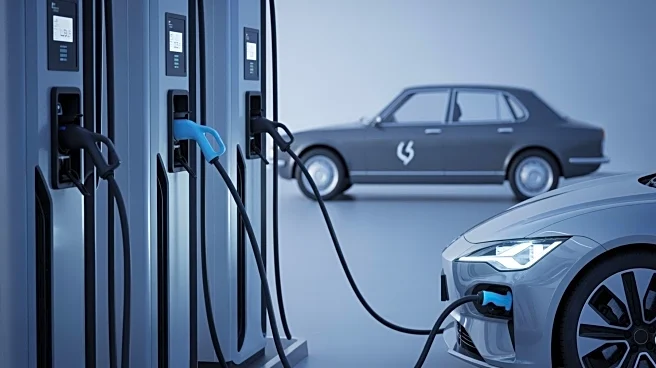What's Happening?
BMW's iX3 electric vehicle has experienced higher-than-anticipated demand following its launch at the IAA on September 8. Christian Ach, head of BMW Group Germany, reported over 3,000 orders within six
weeks, surpassing expectations for this model. The iX3, built on the Neue Klasse platform, is set to be delivered in Germany by the end of the year, with broader availability across Europe by early 2026. Meanwhile, Volkswagen's ID Buzz electric minivan is facing challenges, with production paused from October 20 to October 24 due to slowing demand and intense market competition. The ID Buzz, known for its modern tech and retro design, struggles with pricing and range issues, impacting its sales performance.
Why It's Important?
The contrasting fortunes of BMW and Volkswagen highlight the competitive dynamics within the electric vehicle market. BMW's success with the iX3 underscores the growing consumer interest in electric models, potentially influencing other automakers to accelerate their EV offerings. Conversely, Volkswagen's production halt of the ID Buzz reflects the challenges of balancing innovative design with market demands and pricing strategies. These developments could affect the strategic decisions of automotive companies, impacting their market positioning and investment in electric vehicle technology.
What's Next?
BMW plans to continue leveraging the Neue Klasse platform, with the next model, the electric BMW 3 Series, expected to begin production next year. This could further strengthen BMW's position in the EV market. Volkswagen may need to reassess its pricing and marketing strategies for the ID Buzz to boost demand and resume production. The company might explore adjustments to make the vehicle more accessible to consumers, potentially leading to increased sales and market competitiveness.
Beyond the Headlines
The situation with Volkswagen's ID Buzz raises questions about consumer expectations for electric vehicles, particularly regarding affordability and range. As automakers strive to innovate, they must also address these practical concerns to ensure widespread adoption. The evolving landscape of the EV market may prompt discussions on sustainable manufacturing practices and the role of government incentives in supporting the transition to electric mobility.










